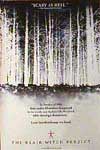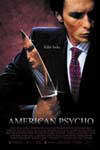
DID HOLLYWOOD FINALLY TAME THE WEB IN 1999?
March 14th, 2004
 DID HOLLYWOOD FINALLY TAME THE WEB IN 1999?
DID HOLLYWOOD FINALLY TAME THE WEB IN 1999?by: Christopher Wehner
Nineteen-ninety-nine is the year Hollywood finally embraced the Web, more accurate might be that it was forced to embrace it. "More than ever before, this was the year that the Web truly exploded." You don't have to look real hard to find evidence to support that statement.

The obvious example should be first. THE BLAIR WITCH PROJECT pulled in over $140 million as a direct result of a unique marketing effort targeting Web users. The Web subculture grasped onto the movie, and still hasn't completely let it go. The film's site was generating 75 million hits at its peak, and millions of visitors per month. If you're not convinced that Artisan's web site alone can be credited for the film's success you're right. It wasn't just the web site, but the entities that flowed from it. Web rings and discussion groups grew as Web users flocked to chat rooms and message boards to exchange stories and reflections. Not only that, Web surfers consumed every article and interview they could find about the film.
Creative Screenwriting's web site, which I manage for them, saw an enormous push in unique visitors right after we posted an interview with BLAIR WITCH filmmaker's Sanchez and Myrick. That interview is still in our top 10 visited pages on the site. The flux of activity generated such buzz that the movie became a cult favorite immediately. Lead by teenagers and young adults, the movie took on a life of its own. Hundreds of web sites took advantage of the enormous interest in BLAIR WITCH by scrambling to do interviews, reviews and articles.
Now, a year later, Hollywood may still not be getting the picture, in a March 2nd, 2000 column Marc Graser and Dade Hayes of Variety reported:
"Despite pie-in-the-sky predictions of Net-fueled glory, not one film has been able to successfully fill theater seats using the Web since BLAIR WITCH..."
Still it was agreed that BLAIR WITCH "served as a wake-up call, and the majors and Indies are now including the Internet in their portfolio." The origins of BLAIR WITCH's success has a lot to do with the kind of film it was.

Lions Gate, the independent distributor for AMERICAN PSYCHO, attempted to harness the web in its promotional efforts. Even going as far as spending $50,000 on an Internet game for the movie. Their efforts were misguided, they aimed solely at "exposure and awareness" for the picture. These in of themselves will not do any more good than what could be accomplished with trailers in theaters and on TV. To "capture" the Web subculture a distributor, and/or filmmaker, must get Web users involved and allow them to play out their own fantasies. The BLAIR WITCH Web site took a unique POV (point of view), one that clearly suggests the three filmmakers actually did exist, and actually died. It was a clever "hook" that captured the imagination of the Web subculture. It was perfect timing as well, there has always been a major anti-Hollywood presence on the Web, and Artisan Entertainment exploited that to help make BWP the success it was. BLAIR WITCH was anything but a Hollywood movie.
The next obvious sign that the Web arrived in Hollywood in 1999 came when Premiere magazine acknowledge Harry Knowles in its "100 Most Powerful People in Hollywood" issue. Coming in at number 98, Knowles is the first Web site operator and owner to make such a list on only those merits alone. "I know how powerful he is," wrote one Oscar nominee last year in the LA Times. Knowles Web site, aint-it-cool-news.com, is considered to be the source for movie and production news and gossip. There are legend worthy tales of how this one Web site has blown up movies before they were ever released. By simply posting negative reviews from test screenings Knowles and his followers can turn the tide against virtually any movie. Negative reviews generate negative buzz. It's a domino effect that some films can never recover from. On top of that, it all happens months before the film is released, therefore ensuring that there is time for the negative reviews to spread.

With over 2 million monthly readers Knowles' Web site can create an incredible backlash. Knowle wanna-bes read these reviews and post them on their own Web sites. These reviews are forwarded to friends, and I guarantee there are plenty of people posting their own bogus reviews on discussion boards based on what they have read without ever seeing the movie. It all adds up. The tidal wave that can be generated is not hard to imagine. Given time, like a few months, a movie can be dead in the water before it is ever released. Now, imagine how good it would be for a film if it received positive Web reviews? BLAIR WITCH received a rave review from Knowles, and look what happened. A movie no one had heard about until Knowles posted his review, and the rest is history. GLADIATOR was raved about on aint-it-cool-news.com, many other sites as well, and look at what happened on its opening weekend. Was it a good movie? Hell yes, but who's to say it wasn't the online hype that played a significant role in the movie's success. I understand that GLADIATOR is the kind of movie, if done well, that will always be a success. But there are levels of success, and GLADIATOR will be at the top very soon because of the buzz that has been generated online. (see Side Bar to this article)
Note: HANNIBAL (the sequel to THE SILENCE OF THE LAMBS), the hype is already beginning. Before filming even started there were sometimes daily reports about who was playing what part. From the writers to the producers, not a name is being spared. A teaser trailer hit the Web just last week, before it appeared in theaters. For the next 8-12 months until the film is released, the hype will continue to build. There will be lulls in the action, but never for long. The key now is how it is reviewed online. But make no mistake, even if the reviews are mediocre, people will still line up at theaters to see HANNIBAL based on the success of THE SILENCE OF THE LAMBS. But as we know, there are all kinds of levels of success. If the Web buzz is positive, HANNIBAL will be big.
Another sure way to demonstrate that the Web had arrived in Hollywood in 1999 is by how those in Hollywood actually used it. For some time it appeared that Hollywood liked the "thought" of using the Internet and nothing more, as it never seemed to get around to using it effectively. I'm not talking about the sale of merchandise, but the vision and desire to use the Web as a practical business device beyond ecommerce. As a communication and information device the Internet is second to none.
In an LA Weekly article Brendan Bernhard reported on "Secret Web sites" used by development executives to compare notes on screenplays and talent. They are called "Web Tracking Sites," and they are reportedly heavily used. Executives jump online and exchange messages about scripts, some deciding the fate of material after reading a short five word post by another executive. Not only are writers up against spiteful readers, but now they must deal with the whims of cranky executives punching away at their laptops at three in the morning. Someone doesn't like you or your script, they can see to it that half of Hollywood knows how they feel, and can do so very quickly. The phone could never spread opinions and thoughts like this.
Before 1999 the Web seemingly had never supported the development of original entertainment programming delivered online, "Webcasting" as it has been called. The wide felt collapse of American Cybercast (a 1995 Web Start-up) and their show "The Spot," which never seemed to get over the software and bandwidth hump, was evidence that the Entertainment industry had not grasped the Web. But it is reasonable to say that 1995-6 was just to early. Not enough users online, meant not enough kids. The Web subculture couldn't support Webcasting so early on.
Even in 1999 with better multimedia software and improved connection speeds to the Web, developing original programming for online delivery remained a risky proposition. By mid-year of 1999 the Web was showing much promise for original online content providers.
In late 1999 DreamWorks SKG heads Spielberg and Katzenberg along with Imagine Entertainment's Ron Howard and Brian Grazer announced plans to have their own "Webcasting" site called POP.com. It will broadcast original live-action and animate comedies of 5 to 6 minutes in length, featuring A-list talent. Their funding came from DreamWorks investor Paul Allen's Vulcan Ventures Inc. to tune of $50 million.
From Trimark to Sony Pictures, all of the big boys are now getting involved in developing their own original Internet programming. The Entertainment community is continually spending more money developing Internet ventures.
In May of 1998, The Internet News Channel ZDNN ran a survey asking, "Do Hollywood Web Sites influence which movies you see?" Over seventy percent said yes. I've seen other informal surveys run even higher. With more people coming online each month than the month before, and with still over 30% of households in American without a computer, the Web's influence on Hollywood will only grow.
The Internet is changing how Hollywood, the Entertainment industry, considers their products and how they produce them, and don't think for a moment that the "Players" are at all pleased.
Why should they? For one, the Web has spawned a new era of piracy. Officials at the Motion Picture Assn. of America reported in May of 1999 that stolen copies of THE MATRIX, 8MM and SHAKESPEARE IN LOVE were being passed around the Internet in increasing numbers. From College kids with high-speed access to the professional pirate, everyone was getting involved. What effect if any this will have on future revenue is debatable as quantity and quality are still major issues for online pirates. Besides, if someone really likes a movie they'd much rather own it on Video or DVD.
But that's not all the Lords of Celluloid must contend with, there is a new wave of filmmakers taking Hollywood by storm. Digital filmmakers, who can create high quality images faster and cheaper than their celluloid counter-parts. They are even collaborating online to build their anti-film movies. The future of moviemaking may not be "filmless" anytime soon, but these digitized film geeks are staking their claim in the moviemaking industry.
Web sites like atomfilms.com, thebitscreen.com and ifilm.net started proliferating in 1999. The number of streaming media sites and filmmaking sites with a focus on every possible method of filmmaking doubled this past year.
During this years Sundance (2000) Owen Gleiberman on the Entertainment Weekly Web site had this to say:
"The one movie I saw that I wouldn't hesitate to call extraordinary, Miguel Arteta's CHUCK & BUCK, (which) was shot on digital video -- and make no mistake, it's a mesmerizing breakthrough, though not at all like the handheld camcorder trifles I'd envisioned. Every shot in CHUCK & BUCK is classically composed. Watching it, you don't miss the warm, saturated gradations of film stock (the images, in fact, have been transferred to 35 mm), because the film's deeply disturbing humanity emerges from the video camera's disarmingly casual intimacy with the actors."
Low budgets and high quality, what's next? From the highest paid actor to the most overzealous producer, they were all concerned this past year as they watched THE BLAIR WITCH PROJECT, shot for $35 grand with no stars, hell barely any actors, trounce all of them. Anti-Hollywood is what the Web subculture loves.
You may be asking yourself, what the hell! This guy has rambled for almost 3 pages now about something called "Web subculture," what is it? I've spent a lot of time in chat rooms and on message boards. I've gotten to know these creatures. They come out at night, tend to be between the ages of 15-25, they like anything that is anti-establishment or anti-anything for that matter. One subculture rouge I spoke with said that the Internet has empowered them, they have a voice. The ultimate democratization of the Entertainment industry is what the Internet has forced Hollywood to realize this past year. Before then Hollywood had been in serious denial, or at least guilty of short sightedness.
The Web subculture believes it can dictate how a movie will do, what books people will buy and so on. From posting bogus book, film and product reviews on sites from Yahoo to Amazon, they indeed can have a very influential voice. Whether you believe it or not, trust it or not, you cannot ignore the ability the Internet has to give the power back to the masses. Anyone, with the knowledge and/or organization can, if lucky, start a rumor or convey a message that could potentially be reached by millions... and within a very short period of time.
So where does all this leave the helpless screenwriter? Well, doors are being opened every day on the Web, just be careful. Script submission sites where writers supposedly can be exposed to producers, agents, whoever, are opening up everyday it seems like, but only for a price of course.
Frankly there have been a very insignificant number of writers who have made meaningful contacts by posting their script online. A few of them have managed to option or sell their work. The NY Times recently did an article that discussed how a few writers have had success posting material online. More power to them. But, if I've said it once I've said it a million times, posting your material online is never a good idea. Creating a Web site, posting log lines, maybe the first ten pages, these can be good ideas. But allowing strangers to read your entire script is story suicide. If you're just itching to post your material online do it in a safe environment.
They're not going to come to you, you have to go to them. Now, this does not mean that you shouldn't consider some of the alternatives that exist. There are services that offer password protected sites where material is only viewed by professionals. For example, for a fee of around $100 dollars you can post your material on sites like scriptshark.com whom in turn if they feel your work is of value will hook you up with a manager or agent. Who in turn can get your script read by some nice companies. They have an impressive list of members who read material: DreamWorks, Mandeville Films and Destination Films, to name a few.
Warren Zide of Zide/Perry Films launched InZide.com several months ago to attract new writers and material as well as to offer some basic resources for writers. They take their Web site very seriously and reportedly have optioned material from online submissions.
It can happen, you could sell or option your script online. But some sites come along that are scams, just be careful. For me, I ask this basic question, "why are they doing it?" Isn't ICM or whoever not sending enough good material to them already? Of course they are, that's what they get paid to do. These Web sites like ScriptShark are doing it for the money. Sure, they hope the next AMERICAN BEAUTY will be submitted to them via their site, but believe me, ain't nobody over there holding their breath.
But remember, there is no such thing as a free lunch. You have to give something to get something. And if you think about it, you're really in it for the money too... and if you have yourself convinced otherwise, you're just fooling yourself.
Only logged-in members can comment. You can log in or join today for free!
No comments posted.
Advertisement

















